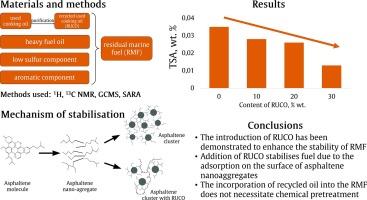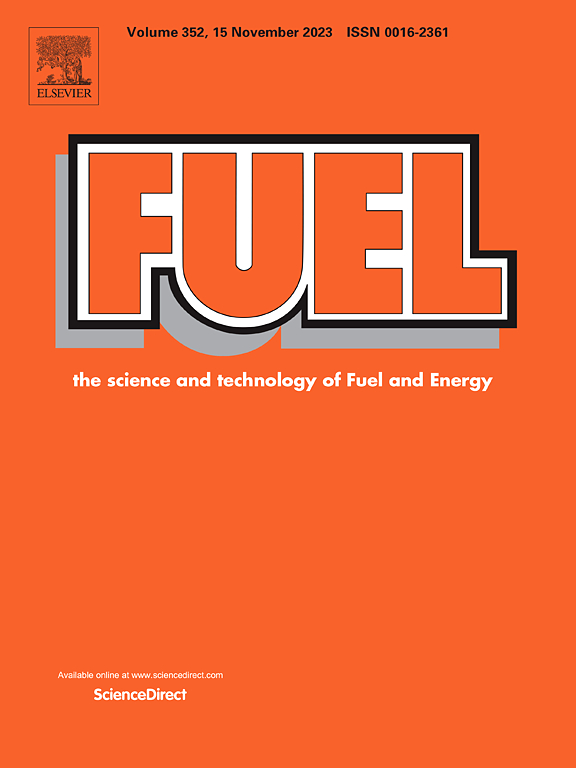Establishing the influence of recycled used oil on the sedimentation stability of residual marine fuel
IF 7.5
1区 工程技术
Q2 ENERGY & FUELS
引用次数: 0
Abstract
The more stringent requirements for the environmental performance of marine fuels, stipulated by the ISO 8217:2024 standard, which also provides for the possibility of expanding the use of renewable resources in the fuel composition, makes the study of alternative fuels more relevant than ever. Residual marine fuels, which are a mixture of high sulphur residues, distillate and gas oil fractions, are well suited for the introduction of a biocomponent. In our work we investigated marine fuels consisting of asphalt, vacuum residue, atmospheric residue, hydrotreated vacuum distillate, hydrocracking residue and catalytic cracking and delayed coking gas oils with the addition of recycled used cooking oil. Quality parameters and hydrocarbon composition were determined for the fuel components and the biocomponent, as well as the main indicator of sediment stability of the colloidal fuel system – total sediment accelerated. It was found that with increasing the proportion of recycled used cooking oil in the composition of marine fuel, its density, viscosity, and sulphur content decreased. In addition, it was found that the introduction of recycled used cooking oil has a positive effect on the sedimentation stability of the fuel due to the triglycerides of fatty acids contained in it, which due to their surface-active properties stabilise the asphaltenes contained in the fuel.

建立回收废油对船用残余燃料沉降稳定性的影响
ISO 8217:2024标准对船用燃料的环境性能提出了更严格的要求,这也提供了在燃料成分中扩大使用可再生资源的可能性,这使得替代燃料的研究比以往任何时候都更加重要。残留的船用燃料是高硫残留物、馏分油和汽油馏分的混合物,非常适合引入生物成分。在我们的工作中,我们研究了由沥青、真空渣油、常压渣油、加氢处理的真空馏分油、加氢裂化渣油和催化裂化油组成的船用燃料,并添加了回收的废食用油。测定了燃料组分和生物组分的质量参数和碳氢化合物组成,以及胶体燃料体系沉积稳定性的主要指标总沉积加速量。研究发现,随着再生地沟油在船用燃料中所占比重的增加,地沟油的密度、粘度和硫含量均有所下降。此外,研究发现,引入回收的废食用油对燃料的沉淀稳定性有积极的影响,因为它所含的脂肪酸甘油三酯,由于其表面活性特性,稳定了燃料中所含的沥青质。
本文章由计算机程序翻译,如有差异,请以英文原文为准。
求助全文
约1分钟内获得全文
求助全文
来源期刊

Fuel
工程技术-工程:化工
CiteScore
12.80
自引率
20.30%
发文量
3506
审稿时长
64 days
期刊介绍:
The exploration of energy sources remains a critical matter of study. For the past nine decades, fuel has consistently held the forefront in primary research efforts within the field of energy science. This area of investigation encompasses a wide range of subjects, with a particular emphasis on emerging concerns like environmental factors and pollution.
 求助内容:
求助内容: 应助结果提醒方式:
应助结果提醒方式:


